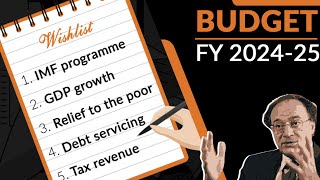Ironically, everything in Pakistan seems to be upside down and anticlockwise. The country often experiences the opposite of what is typically needed for sustained and rapid progress and development. Major decisions that heavily impact the country are often made behind closed doors, based on hearsay, opinions, desires and vested interests rather than deep research and thorough analysis.
Factors such as considering all pros and cons, anticipating all possible outcomes, identifying stakeholders, and assessing the policy’s impact on them are often overlooked. Additionally, there is a lack of measuring benefits versus losses.
In a more ideal scenario, policies would be tested on a smaller target population to evaluate outcomes before being implemented nationwide. In our case, knee-jerk reactions often lead to policies being arbitrarily imposed on the nation without thorough consideration of their implications.
Only after these policies fail to produce the desired results do authorities conduct studies to identify their faults, a process that should ideally precede policy implementation. For instance, the government imposed a policy of telemetry to encourage businesses and households to adopt solar energy.
This policy aimed to help produce cost-effective electricity, reduce the burden on the country’s fragile distribution system, decrease the import bill of LNG, Furnace Oil, and diesel, fill the demand-supply gap, avoid and reduce load shedding, and add excess energy to the national grid.
Initially, the policy faced challenges in gaining traction. However, following multiple increases in electricity charges, which became so exorbitant that even upper-middle-class households earning up to Rs 300,000 per month struggled to make payments without sacrificing essential necessities such as children’s education, decent clothing, nutritious food, and rent payments if they did not own their accommodation.
Telemetry emerged as the most viable solution to address the hefty electricity charges. As demand for telemetry increased, a robust supply chain developed to cater to this growing demand, creating many job opportunities all along the supply chain.
Households with some savings left invested in telemetry and began benefiting from reduced electricity bills, while contributing cost-effective and clean energy to the national grid, saving millions in the process to the government.
All of a sudden, the government decided to reverse this policy, citing illogical, irrational, and outrageous reasons, which even in their hearts they knew had no basis and would hurt people and the country immensely. The first reason given was that the government is supposedly subsidizing affluent households by paying them Rs. 19, and in some cases Rs. 22, for each unit of electricity transferred to the national grid.
However, this claim is inaccurate. In reality, it is the households that are subsidizing the government. The government sells electricity to consumers at the rate of Rs 65 per unit, while it purchases the electricity from households at Rs 19, which is 3.4 times less than the selling price.
If the government decides to punish people for generating clean and environmentally friendly energy by either reducing the purchase price or reversing the policy altogether, households may install batteries to store the energy instead of transferring it to the national grid which would deprive the national grid from cost effective and clean source of energy.
Furthermore, the government is unfairly charging affluent households for converting to solar systems, portraying them as if they are committing a heinous crime and making them feel guilty for increasing the burden of electricity charges on the poor segment of society.
In reality, the failure of the government to pay back hefty electricity charges to the Independent Power Producers is a major factor contributing to the ballooning electricity circular debt, and the telemetry policy has nothing to do with it.
The government is also unfairly charging affluent households as if they are violating the telemetry policy for converting too fast on solar energy, without realizing that it was the duty and responsibility of the policy makers and the planners to determine the speed of conversion on solar system through automatic check and control system, notwithstanding the fact that the government should encourage fast conversion of households to clean energy instead of terming them some kind of criminals instead of rewarded them for fast conversion of the country to the clean electricity system.
Qamar Bashir
Copyright Business Recorder, 2024



















Comments
Comments are closed.